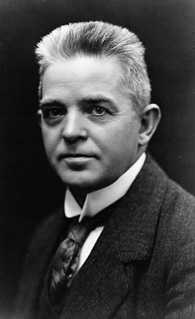Maskarade
| Carl Nielsen |
|---|
 |
|
Operas
|
Maskarade (Masquerade) is an opera in three acts by Carl Nielsen to a Danish libretto by Vilhelm Andersen, based on the comedy by Ludvig Holberg. It was first performed in 1906.
Announcement of plans to turn Holberg’s classical comedy into an opera buffa met with dismay in Danish literary circles, but the opera quickly gained popularity, surpassing that of the play itself. Nielsen was not entirely satisfied with the opera, citing structural weakness in the final two acts; but he never got around to revising the work. The overture and the ballet from the third act ("Dance of the Cockerels") are performed frequently, as noted by the Carl Nielsen Society, which states that the overture is one of Nielsen's most widely performed works at concerts in Europe and North America.[1]
Performance history
The first performance was at Det Kongelige Teater, Copenhagen, 11 November 1906. The United States premiere was conducted by Igor Buketoff, with St' Paul Opera, Minnesota and the first reported New York performance was by the Bronx Opera Company in 1983.[2] The Chicago premiere took place on 18 January 2014 at the Vittum Theater by the Vox3 Collective.[3]
Roles
| Role | Voice type | Premiere cast[4] 11 November 1906 (Conductor: Carl Nielsen) |
|---|---|---|
| Jeronimus, a citizen of Copenhagen | bass baritone | Karl Mantzius |
| Magdelone, his wife | alto or mezzo soprano | Johanna Neijendam |
| Leander, their son | tenor | Hans Kjerulf |
| Henrik, Leander's valet | bass baritone | Helge Nissen |
| Arv, Jeronimus' servant | tenor | Lars Knudsen |
| Leonard, a citizen of Slagelse | tenor or baritone | Peter Jerndorf |
| Leonora, his daughter | soprano | Emilie Ulrich/Ingebord Norregaard-Hansen |
| Pernille, Leonora's maid | soprano or mezzo-soprano | Ida Møller/Margrethe Lindrop |
| Mask Vendor | baritone | |
| Doorman at the Playhouse | bass | |
| A Tutor | bass | |
| Night Watchman | bass | |
| Master of the Masquerade | bass | Albert Petersen |
| Masqueraders, Students, Girls, Officers | ||
Synopsis
- Time: Spring 1723
- Place: Copenhagen
The story revolves around Leander and Leonora, two young people who meet fortuitously at a masquerade ball, swear their undying love for each other and exchange rings. The following day, Leander tells his valet Henrik of his newfound love. He becomes distraught when reminded by Henrik that his parents have betrothed him in marriage to Leonhard's daughter. Things get complicated when Leonard from remote Slagelse, whose daughter is the other part of this arrangement, comes complaining to Leander’s father that his daughter is in love with someone she met at the masquerade the previous night. In the third act, all is resolved when the various parties slip off to the night's masquerade, where all is revealed to everyone's mutual satisfaction.
Cultural significance
Maskarade has become the Danish national opera. The masquerade of the title is a place where the characters can leave behind the oppressed lives they lead in a rigid society; it represents liberty and the Enlightenment, and even more, perhaps, a sense of joie de vivre in a land where weather (and duty) is often cold and gloomy. The patriarch Jeronimus, Leander's father, rails against the masquerade and all it represents; but a thread of the plot explores how all his authority and his antipathy toward the masquerade fail to prevent his son's (not to mention his own) progress toward freedom and happiness. The final scene of the opera is colored by a bitter-sweet recognition of human mortality, and the urgent importance of finding happiness to brighten it.
References
Notes
- ↑ "Performances", Carl Nielsen Society. Retrieved 30 October 2010.
- ↑ John Rockwell (16 January 1983). "Maskarade, by Carl Nielsen". New York Times. Retrieved 30 Oct 2010.
- ↑ "Festival | VOX 3 Collective". vox3.org. Retrieved 21 Sep 2014.
- ↑ "Almanacco 11 November 1906" (in Italian). AmadeusOnline. Retrieved 26 Oct 2010.
Sources
- Notes and libretto accompanying the 1998 Decca recording 460 227–2.
- Warrack, John and West, Ewan, The Oxford Dictionary of Opera, (1992) ISBN 0-19-869164-5
External links
- Seckerson, Edward, “Drunk with Pleasure – Nielsen's Maskarade at Covent Garden",The Independent (London), 21 September 2005, at Andante.com
- The Carl Nielsen Society :
- Discography
- Account of the opera’s composition
| ||||||||||||||||||||||||||